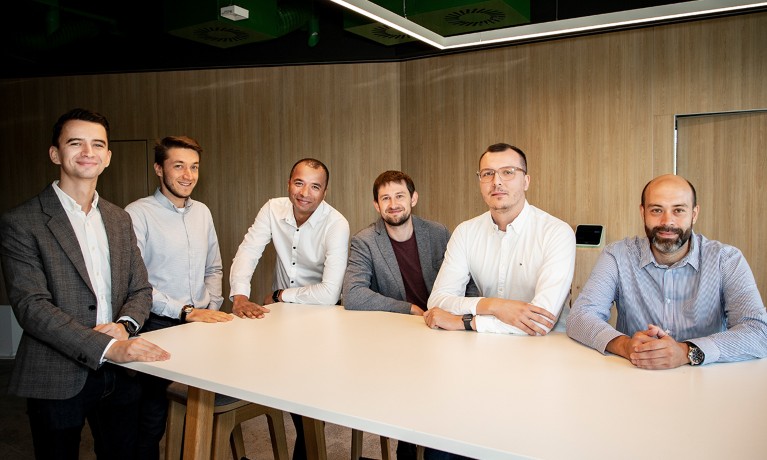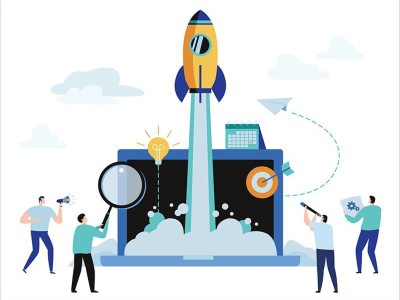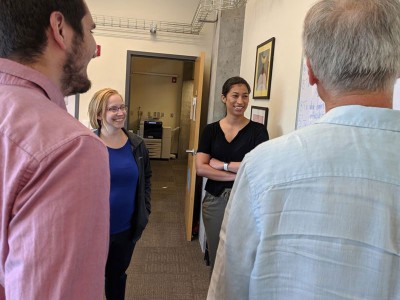

A career-development plan can be a useful tool for researchers in both academia and industry.Credit: Getty
Some scientists think of a career path as being set in stone, following a predictable trajectory. Typically, it starts with pursuing a PhD, followed by a postdoctoral position and — if the scientist is fortunate — obtaining a tenured position or perhaps moving away from academia to industry. Having navigated both fields, I’ve realized that one area in which industry particularly excels is in providing employees with structured and specific career advice, tailored to their specific interests and goals. This is often done through a career-development plan, something that I think could also be effective for academics.
This plan is a way of mapping your future career, specifying the work you need to do to ensure that you reach where you want to be. In my experience, structured thinking about personal development like this isn’t common in academia, and I’ve found development plans to be helpful in advancing my industry career, and to guide others I’ve managed in developing theirs.
Individual career planning is promoted by prestigious business magazines, as well as by governmental agencies. Research reveals that employees who have opportunities to plan their development have an 15% increase in engagement and a 34% improvement in retention rates compared with those who don’t. One 2018 LinkedIn Workplace Learning Report even found that “94% of employees would stay at a company longer if it invested in their career”.
How to prepare a career-development plan
Preparing a plan requires asking yourself questions such as what to focus on in daily work, what to learn and what role to aspire to.
For example, in 2013, when I transitioned from academia to industry by joining BAE Systems Applied Intelligence, an international security-technology company based in Guildford, UK, my manager initiated writing my first career-development plan. This plan focused on leveraging transferable skills from my experience as a research and teaching assistant at Poznań University of Technology in Poland, such as problem-solving and data analysis, to solidify my position in the company. Furthermore, we identified skill gaps, such as a lack of familiarity with the company’s software programming language, and planned internal training sessions to help me tackle them.
A plan for action
The development plan was outlined in a document, which we sat together and worked on after a meeting about my goals, ambitions and areas to improve in. The first page described my current career status, including my strengths and weaknesses, and articulated where I aimed to be in a year. The second page listed the activities that I should undertake to achieve it.
On another occasion, I proactively discussed my aspirations to move from being a senior data analyst to a technical leader for software role with my then-boss, showcasing my passion and self-study. Highlighting the benefits of my dual expertise for the company, I gained his support. Together, we crafted a plan that facilitated this transition.
Now that I lead data science at Żabka, a chain of convenience stores, headquartered in Poznań, I value the individualized career advice that fuelled my own growth. Ensuring that my team members have their own plan is a priority for me.
Crafting an individual development plan has three stages:
The starting point. Making a plan is generally a collaborative effort, requiring buy-in from your manager or mentor. But this doesn’t mean that they have to initiate the process. Try to express interest in discussing your career path and invite them to share their suggestions. Involve them by showing how this exercise could enhance your effectiveness and engagement at work.
How agile project management can work for your research
Be open about your strengths and weaknesses, and the direction in which you want your career to develop, and ask for their perspective on your work habits and performance. If, for example, you’d like to move towards more of a leadership role, say that you are a good organizer, manage your time well and help your team members to plan their activities. However, you might also need to learn more about giving feedback or improve your assertiveness skills.
Moreover, seek input from your team, collaborators, students and other faculty members (or 360-degree feedback, in professional-development jargon) to understand their perspectives. Ask them the same questions you asked your supervisor. I also suggest including at least one open-ended question that allows respondents to share their general thoughts about your cooperation. Using a digital survey platform such as Google Forms can enhance response rates, particularly for remote collaborators.

Tomasz Głowacki (far right) with colleagues at Żabka Group.Credit: Żabka Group
From my experience, making the survey anonymous could encourage more-honest feedback. Through this exercise, you might gain a better professional understanding of yourself.
Establish a final destination. When creating a career-development plan, it’s crucial to have a clear idea of the end goal — what you want to develop towards. I’ve learnt that people are often unaware of all the opportunities offered by their organizations. Don’t hesitate to talk to your supervisor about different roles in your institution, learn what they entail and what skills they require. Also, try to identify other leaders you know or have worked with whose careers you aspire to.
What markedly advanced my development was inviting a few members in my network for 30-minute interviews about their career path, to seek advice and draw from their experience. I have found that successful individuals are often more than willing to talk. Keeping meetings short, with a clear agenda and a compelling explanation of why you seek their insights can help to secure their time and attention.
A project-management tool from the tech industry could benefit your lab
I’ve consistently used this approach, for example, to develop my leadership skills. I asked Willy Picard, a senior manager at Fandom — a kind of wikipedia for TV, film or comic books, based in San Francisco, California — and one of the best leaders that I’ve worked with, about transitioning to management. He emphasized that the essence of leadership is enabling others to fulfil their potential, which steered me to prioritize improving my mentoring skills. It might make sense to openly share your career aspirations with your supervisor, to better discuss how to effectively blend what they need from you day-to-day, alongside longer-term development to achieve your future career goals.
The career journey. Now that you know where you want your career to go, identify the missing skills for your expected career development. Include both hard skills, such as familiarity with specific technologies or research methodologies, and soft skills, such as effective communication or teamwork. This could be done through a brainstorming session involving you and your supervisor or an experienced colleague, who can, in particular, help you to understand and explore what you don’t know.
Then, for each gap, you should identify which training to undertake, projects to pursue, individuals to consult and readings to delve into that could help you to learn new skills. I also recommend setting metrics to objectively evaluate whether you’ve learned it. These could include passing a certification exam, receiving improved feedback from peers or successfully delivering a presentation on a specific topic.
For instance, during my transition into software, I identified gaps in agile methodologies and coding standards. To master agile methodologies, I read selected books and articles. My benchmark for success was obtaining the Professional Scrum Master certificate, a well-recognized industry certification issued by Scrum, a professional-development platform. For software coding standards, I practised coding and consulted with experts. To demonstrate my proficiency, I gave a presentation on these topics to my team.
Careers advice from scientists in industry
Another time, as a supervisor, I assisted a team member in developing his plan following his transition from academia to industry. He had struggled with teamwork, having mostly worked alone previously. To enhance his teamwork skills, our plan included engaging in discussions with colleagues who had undergone similar transitions and regular mentoring sessions with me. We measured his success through regular feedback from the team.
After this exercise, you’ll have an individual career-development plan. It is important to regularly review and adjust it as you learn more about your own capabilities and aspirations.
The plan is important, but for me, the entire planning process is even more crucial. Spending time consciously thinking about your career aspirations and learning from others is valuable in itself, and should give you a better understanding of the areas where you can develop your career. Ultimately, a professional career isn’t fixed or left to chance.
Source link








